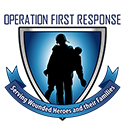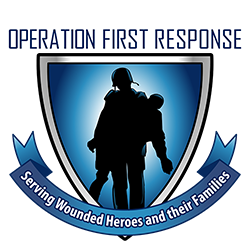PTSD is a disorder that can occur after a traumatic event involving the threat of injury or death but there is a significant difference between the PTSD of a vehicle accident survivor and that of a Combat Veteran or a First Responder who is threatened with injury or death day after day, week after week, for months at a time. Characterized by:
- intrusive thoughts
- painful memories
- reoccurring nightmares
- sleep loss
- hyper vigilance
- isolation
- depression
- social anxiety
- anger
Military Combat PTSD is exacerbated by the battle mindset. During combat a Soldier’s duty is to survive and do their best to keep their comrades alive, this can compound the normal sense of survivor guilt, most believe that they have failed their comrades who were killed or severely injured. These emotions isolate the Warrior because they cannot be shared with anyone who has not had the same traumatic experience, which explains the Combat Veteran’s belief that his/her family members or therapist will not understand because they haven’t been there. At the same time studies indicate that talking about the trauma can be the key to unlocking its debilitating grasp.
First Responders, our everyday Heroes, encounter risks and dangers to protect us daily. They are driven by a selfless commitment to serve others. Even with increasing challenges their dedication remains unwavering. We must appreciate these courageous Heroes who often go unnoticed but are vital in keeping our communities safe.
OFR has traveled this journey with our wounded Heroes for 20 years, during that time we have experienced the changes they have endured as their journey continues.
PTSD has become the invisible injury that gone untreated can take its toll on our Military and First Responders by means of :
- alcohol and substance abuse
- criminal activities
- unemployment
- divorce
- in severe cases suicide
From our experience the financial devastation can be the last straw
We hope to alleviate the financial stress for the Veteran/First Responder allowing them to make clear decisions about treatment without the burden of the cost it will have on the family. By receiving treatment and learning to cope with PTSD in a manageable manner we will return more Veterans/First Responders to their families and communities as productive members. As the recipients of their Service and Sacrifices, we have a responsibility to ensure their quality of life. Operation First Response is the bridge between the Veteran/First Responder and hope for a promising future, enabling them to concentrate on recovery.
The Last Mission Project scope is to alleviate the financial issue by the following procedures:
During the application process the following documents and information will be required:
- Verifying documents of household bills that will be at risk of non-payment due to the Service Member/Veteran or First Responder’s scheduled treatment program.
- Verifying documents of Service Member/Veteran, or First Responder’s enrollment in PTSD treatment program.
Examples of assistance:
- Rent/mortgage
- Utilities
- Vehicle payments
- Groceries

Services are subject to funds available at the time of request. Which is why your donations are so important!
Services are available to Active Duty Service Members who have been wounded, injured or are critically ill.
Services are available to Disabled Veterans with an awarded disability rating of 50% or higher within the Veterans Administration. Services are available to First Responders who have been wounded, injured or critically ill.




